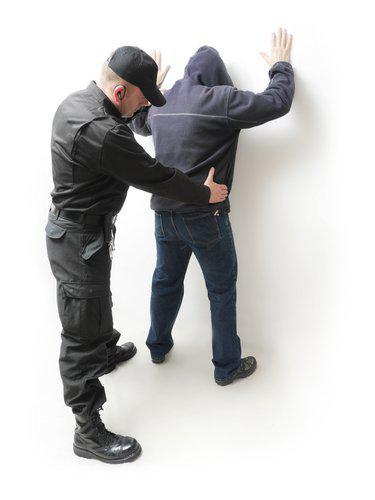Understanding the Exclusionary Rule
 The U.S. Constitution provides a variety of rights to people accused of crimes, such as the right to a jury trial, the right to avoid testifying against oneself, and the right to be safe from cruel and unusual punishment. One of the most important of these rights is the right to be protected from unreasonable searches, which comes from the Fourth Amendment. This right prevents the police from searching a person's home or property without a warrant (with some exceptions).
The U.S. Constitution provides a variety of rights to people accused of crimes, such as the right to a jury trial, the right to avoid testifying against oneself, and the right to be safe from cruel and unusual punishment. One of the most important of these rights is the right to be protected from unreasonable searches, which comes from the Fourth Amendment. This right prevents the police from searching a person's home or property without a warrant (with some exceptions).
This criminal right is unique because of the way the government enforces it. Many constitutional rights are enforced by monetary damages. If a person has their rights violated, then they can sue the government and recover money for the harm they suffered. The protection against unreasonable searches is enforced through something known as the “exclusionary rule.” The exclusionary rule states that any evidence that police uncover as a result of an illegal search may not be used in court. Additionally, any evidence that the police later discover as a result of illegally-obtained evidence is also banned from trial under the colorfully named doctrine of “the fruit of the poison tree.”
Why Have the Exclusionary Rule
The reason for this special treatment makes a lot of sense. If the Fourth Amendment were protected merely by money, then the police could treat this as a “cost of doing business.” They could violate people's rights, find the evidence, secure the conviction, and then pay a little bit extra for the privilege. Since this would be an inadequate method of protecting a person's rights, courts use the more drastic exclusionary rule.
Consenting to Searches
From a practical standpoint, the exclusionary rule is important for everyday people to understand because of how consenting to a search affects the rule. Under Fourth Amendment law, if a person consents to being searched, then the police no longer need a warrant or probable cause or any other legal permission. A person who consents to a police search eliminates the possibility that their attorney can later suppress any evidence the police find because of the search.
Importantly, there is a difference between not consenting to a search and being able to prevent a search. If a person does not consent to a search, the officer may still execute the search based on a warrant or their opinion that they have probable cause. However, that leaves the door open for a person's lawyer to dispute the validity of the warrant or the existence of probable cause. Depending on the evidence in question, the prosecution's entire case can turn on who wins that dispute.
Understanding your legal rights is important for every criminal defendant. If you are being charged with a crime and you believe you the police violated your rights, contact an experienced Milwaukee criminal defense attorney today.







